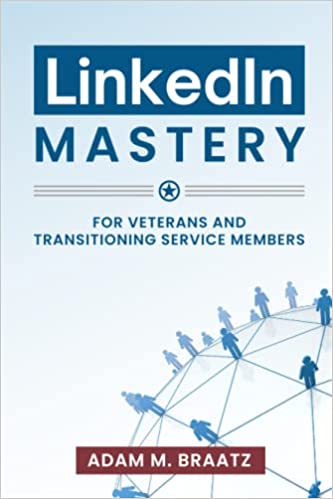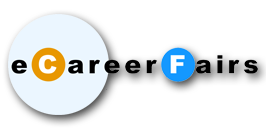It's almost the end of the interview and the interviewer asks "Do you have any questions for me?" How do you respond to this predictable job interview question and what does the interviewer really want you to say?
If you have wondered how to answer "What questions do you have for me?", you'll find examples of questions you can choose from.
Why Interviewers Ask This Question
Why would the interviewer ask this question during the interview? At first glance it can seem unnecessary, especially if you've been asking questions throughout the job interview.
But there's a method to the madness. The interviewer may ask you this to:
- Provide you with a chance to ask your questions
- Assess your interest in the job
- See how well you've been listening
- Be polite
- Kill time
The truth is, it could be any or all of these reasons.
The worst possible answer you could provide is: "No, you've answered all my questions."
Always have questions ready to ask because that shows you are interested in the opportunity and that you've been paying attention.
Keep in mind, your mission during the interview is to determine whether you are interested in the job. And you want to make a good impression. One way to achieve both of these objectives is to have a well thought-out response ready when an interviewer asks you this question.
Honesty, I think most candidates are mentally exhausted by the end of an interview and just want to put on some comfortable yoga pants or sweats. But as tempting as it is to dismiss this question, it's always in your best interest to have several questions ready to go.
Tips For Preparing Your Answer
Your answer to "Do you have any questions for me?" shows the interviewer how well you've paid attention and processed the information provided during the job interview.
The questions you ask also signal to the interviewer what elements of the job and company are important to you as you evaluate their opportunity. Additionally, asking questions also sends a signal that you are seriously evaluating this opportunity as an important step in your career.
Here are some tips to make sure you're ready for this question.
Ask the Right Questions At the Right Time
It's important to keep in mind, the interview process can be lengthy and typically involves several rounds of interviews. During the early interviews, your questions may be more general, but as you get to the final round of interviews, the questions you ask will be more specific and build off of the information you've acquired during previous interviews.
For example, asking about salary, vacation or other benefits is best left until the final interview. It's up to you to gauge the questions you ask based on where you are in the interview process.
Research
As part of your pre-interview preparation, you'll want to carefully review the job posting, research the company and the people with whom you'll be interviewing. This research will help you identify questions you want answered. Here's what to look for when researching each.
Job Posting: The posting is usually a high level overview. It may not address the day-to-day tasks or flow of work. Formulate questions based on what isn't explained in the posting. Some questions to explore include: what portion of your time will be spent in the different responsibilities, how this role will interact with other teams or departments, or about processes or procedures.
Company Research: Is there news about new products or services? Does the company make reference to their mission statement? Has the company been mentioned in the news for other reasons? Ask questions that will help you understand why the company is growing, shrinking, redefining themselves.
People Research: What do you have in common with the person you'll be interviewing with? Did you attend the same school, belong to the same professional associations, did you both work for the same company previously? You can ask about something you have in common or ask how their college, professional association or previous job has impacted their career.
Prioritize Questions
Before diving into your questions, prioritize the two or three that are most important. You may only have five minutes or so before the interviewer has to conclude the interview and you want to make sure you ask the most important questions in case you run out of time.
Don't Wait Until the End
You don't want to wait until the end of the interview to ask all your questions. There simply won't be enough time. Plus, it may be easier for you to ask a question while the topic is discussed.
FYI, an interview feels more like a conversation when you and the interview take turns asking questions. (As you look at some of these questions, some may make more sense to ask earlier in the interview.)
Have a Hard Copy
Write your questions out and have them easily accessible during the interview. And yes, you can refer to your list of questions if you need to. It shows you've prepared for the interview and are thoughtfully considering the opportunity.
Maintain Your Energy
Smile, show respect and maintain your energy when answering "Do you have any questions for me?". Your positive vibes will get noticed and may leave a memorable last impression.
Always Have Questions
It is highly unlikely that all of your questions will be answered. But if you aren't sure what questions you still need to answered — just ask yourself, if I was to start this job tomorrow, what would I need to know? However, if you still feel your questions have been answered, you can always ask the questions mentioned below in the interview process section.
Here are examples of questions you can use when asked this during an interview.
Some Example Questions To Ask
Not every question may be suitable or relevant for you. While a question may sound good, ask yourself if it will provide a meaningful answer and one that will help you determine whether you want the job or not. My advice for selecting from the example questions is to focus on the questions that will provide you with information you feel is important in your decision making.
Review these questions and think about what is most important to you when evaluating your next job opportunity.
Questions About The Role
You want to fully understand the job requirements and what you are expected to do in the role. You also want to understand how your work will be evaluated. If you've done a similar job in the past, don't assume the role will be exactly the same. Here are some you may not have thought to ask.
- Can you tell me more about the team I will be working with?
- Are there any other important aspects of the job that we haven't covered?
- How many hours a week is required for this position? Is overtime expected or allowed?
- Is working remotely an option for this position?
- Is there anything I should know about this position that wasn't included in the job listing?
Company Culture Questions
It can be hard to uncover a company's culture using online research. But culture is a key factor in your satisfaction on the job. It's also difficult to describe culture, so you'll notice these questions evaluate things like leadership style, recognition, feedback and professional development.
Before selecting your questions, think about what you want (or don't want) in your next company and choose questions (or craft your own) based on the elements of company culture that are most important to you.
- What do you like best about working here?
- What communication methods are most commonly used in the workplace?
- What type of work do you delegate to your staff?
- Has anyone on your staff been promoted over the last couple of years? If so, what was the reason this person was promoted?
- What are three things that your peers would say you do extremely well?
- Does the company welcome celebrating special occasions? What was the last occasion your department celebrated?
- Are employees expected to stay up-to-date on their emails over the weekends or while on vacation?
- What opportunities do you make available for professional development and training?
- What type of recognition have you recently given to one of your staff?
Questions About Your Candidacy
One of the questions you would really like to know the answer to is whether the interviewer is interested in moving you forward in the interview process. Without directly asking that question, you can use one of these questions to prompt the interviewer. Asking one of these questions gives the interviewer a chance to ask you about any missing qualifications or gaps in skills.
- Is there anything else I can provide to help you with your decision?
- This job sounds like something I'd really like to do — do you think there is a fit here?
Questions About The Process
Whatever you do, always ask these three questions about the interview process. You need the answers to these questions to understand what your next steps are and when you should follow up.
- Do you have an ideal start date in mind?
- What is the next step in this process?
- What is your timeline for getting back to candidates about the next steps?
What Not To Do
There are a few things to avoid when responding to the question "Do you have any questions for me?".
Don't ask obvious questions
Ask questions that show you were paying attention. Don't ask questions about topics that have already been explained during the interview or can easily be researched online. However, if you are confused or unclear about some aspect of the job or company, you can ask for clarification.
You might preface your question by saying "You touched on the topic of [issue you want to learn more about] earlier and I was hoping you could explain how that works in greater detail."
Avoid self-serving questions
During the first interview, do not ask about salary, benefits or Paid Time Off (PTO). Focus on topics that show you are interested in the role, company and performance expectations. All those topics will be discussed later in the interview process.
As important as these things are, if the job and company isn't the right fit for you, you probably won't be a happy and engaged employee.
Don't ask "yes" or "no" questions
Don't ask questions that can be answered with "yes" or "no." Asking open-ended questions allows the interviewer to give a more complete answer. You'll also learn more about the topic.
Don't get personal
Avoid questions about family and relationships. These step over the boundary and feel like you are invading their personal space. You wouldn't want to or shouldn't answer those types of questions in a job interview either.
Conclusion
When asked, "Do you have any questions for me?" during an interview, it might be tempting to reply that everything you need to know has been covered. However, you definitely want to use this as an opportunity to show your interest in the job and the company.
Take the time to think about your potential responses and use the examples above to help you prepare. You'll be glad you did.



